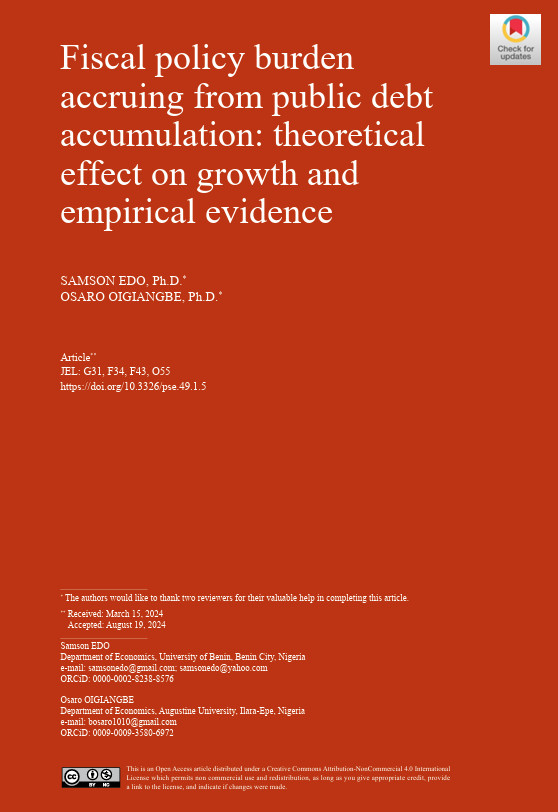Fiscal policy burden accruing from public debt accumulation: theoretical effect on growth and empirical evidence
DOI:
https://doi.org/10.3326/pse.49.1.5Keywords:
fiscal policy, public debt, economic growth, developing countriesAbstract
The study investigates how fiscal policy burden accruing from public debt affects economic growth in Sub-Saharan African countries over the period 1990-2022. It employs the generalized method of moments and auto-regressive distributed lag methodologies, which reveal that fiscal policy burden significantly impaired economic growth during the period. The results, therefore, support the view that the growth benefits of fiscal policy are constrained by large accumulations of public debt, validating the concern raised by multilateral institutions about the economic consequences of large and excessive debt accumulation. Furthermore, the results corroborate the Classical theory prediction of stagnation in long-run growth when existing public debt is too large for fiscal policy to accommodate. Therefore, interventions are required to contain the fiscal policy burden, in order to foster economic growth. Such policy interventions should aim at reducing the level of public debt and increasing the fiscal revenue from non-tax sources.

Downloads
Published
Issue
Section
License
Copyright (c) 2025 Samson Edo, Osaro Oigiangbe

This work is licensed under a Creative Commons Attribution-NonCommercial 4.0 International License.








